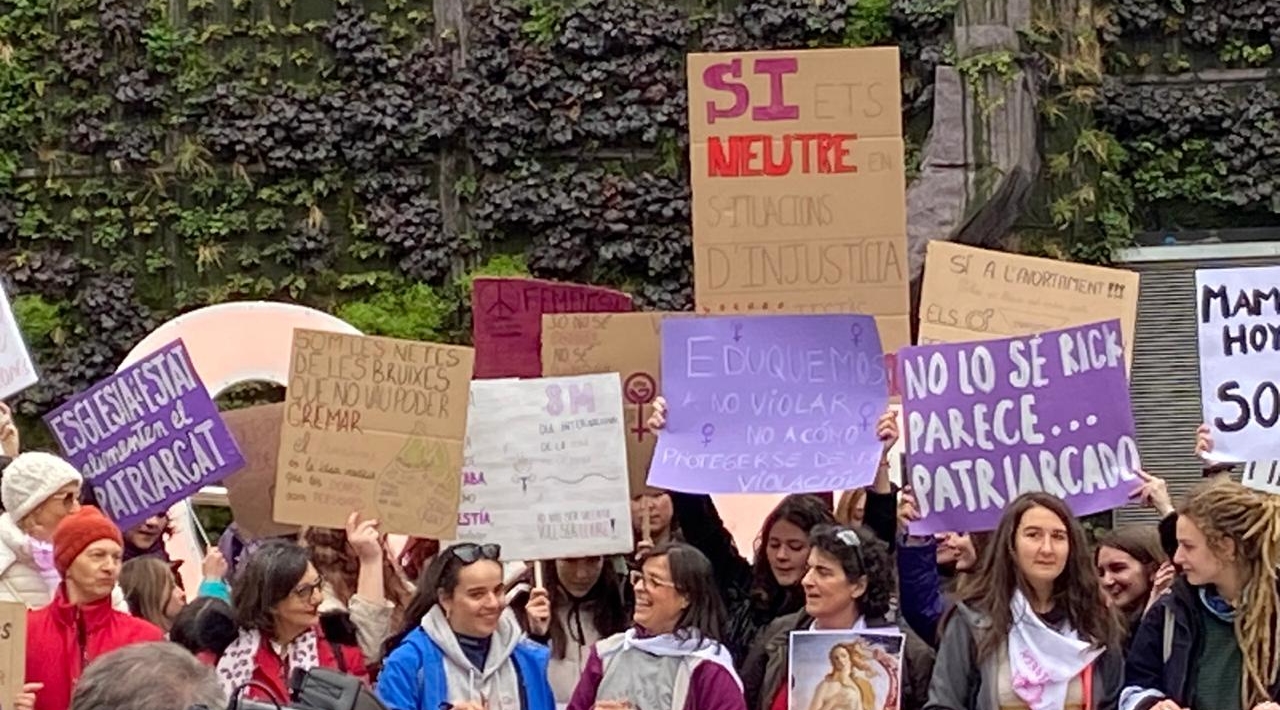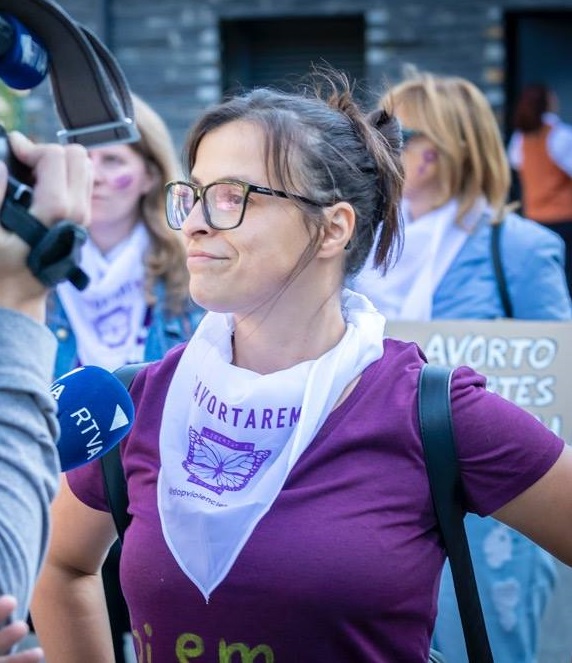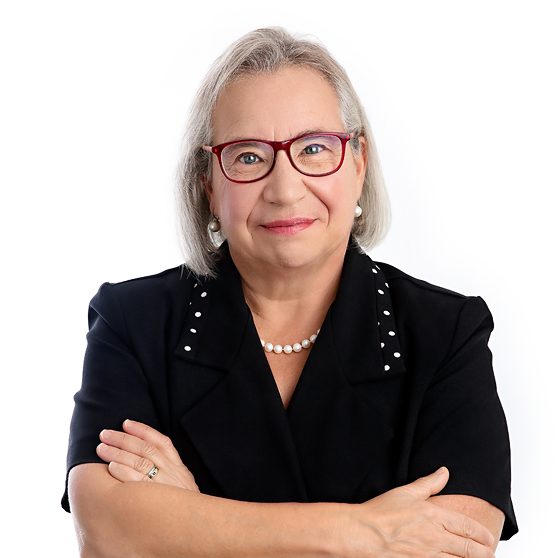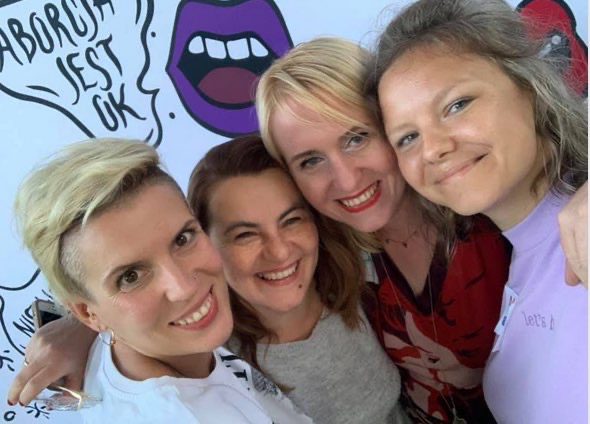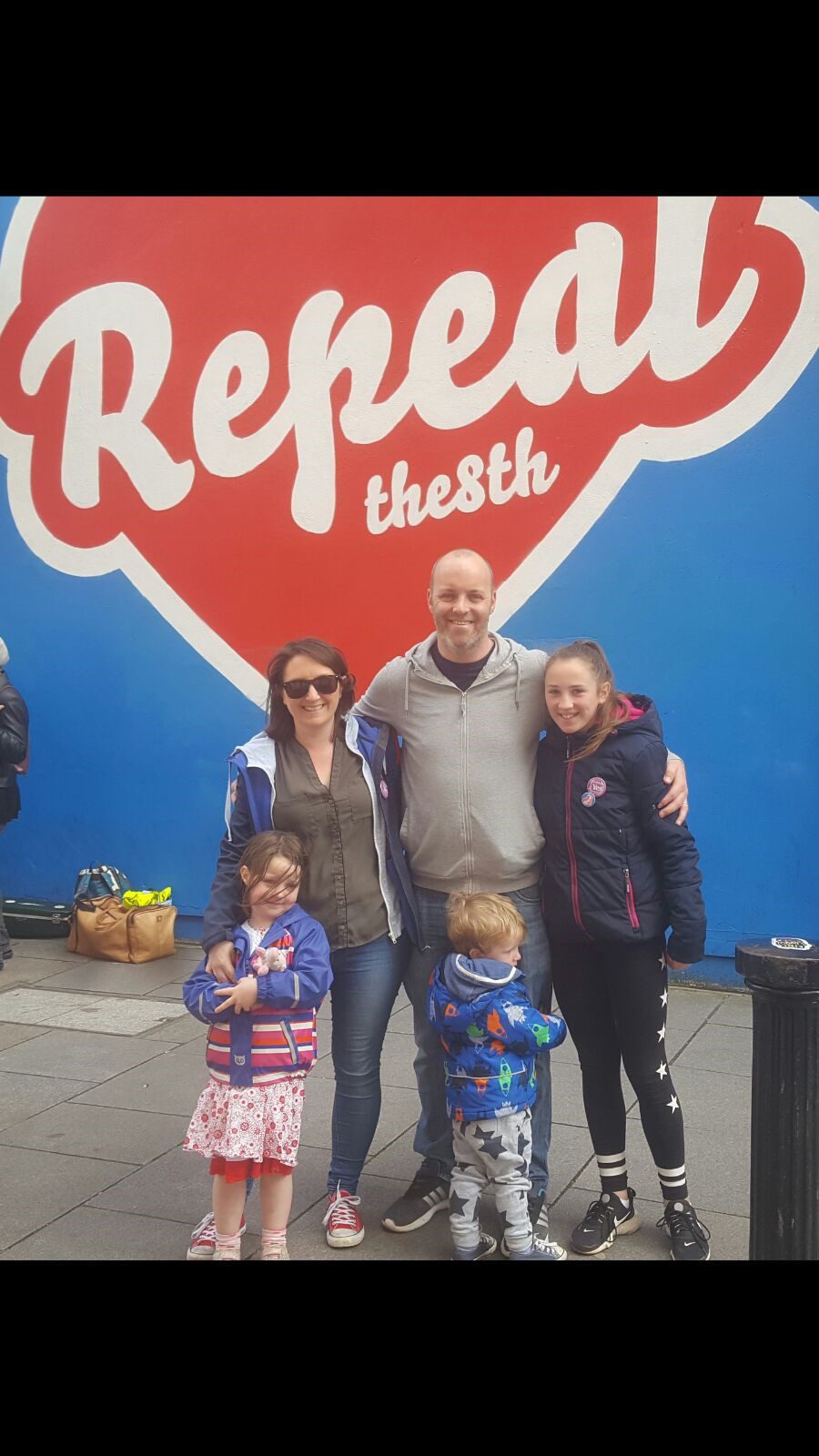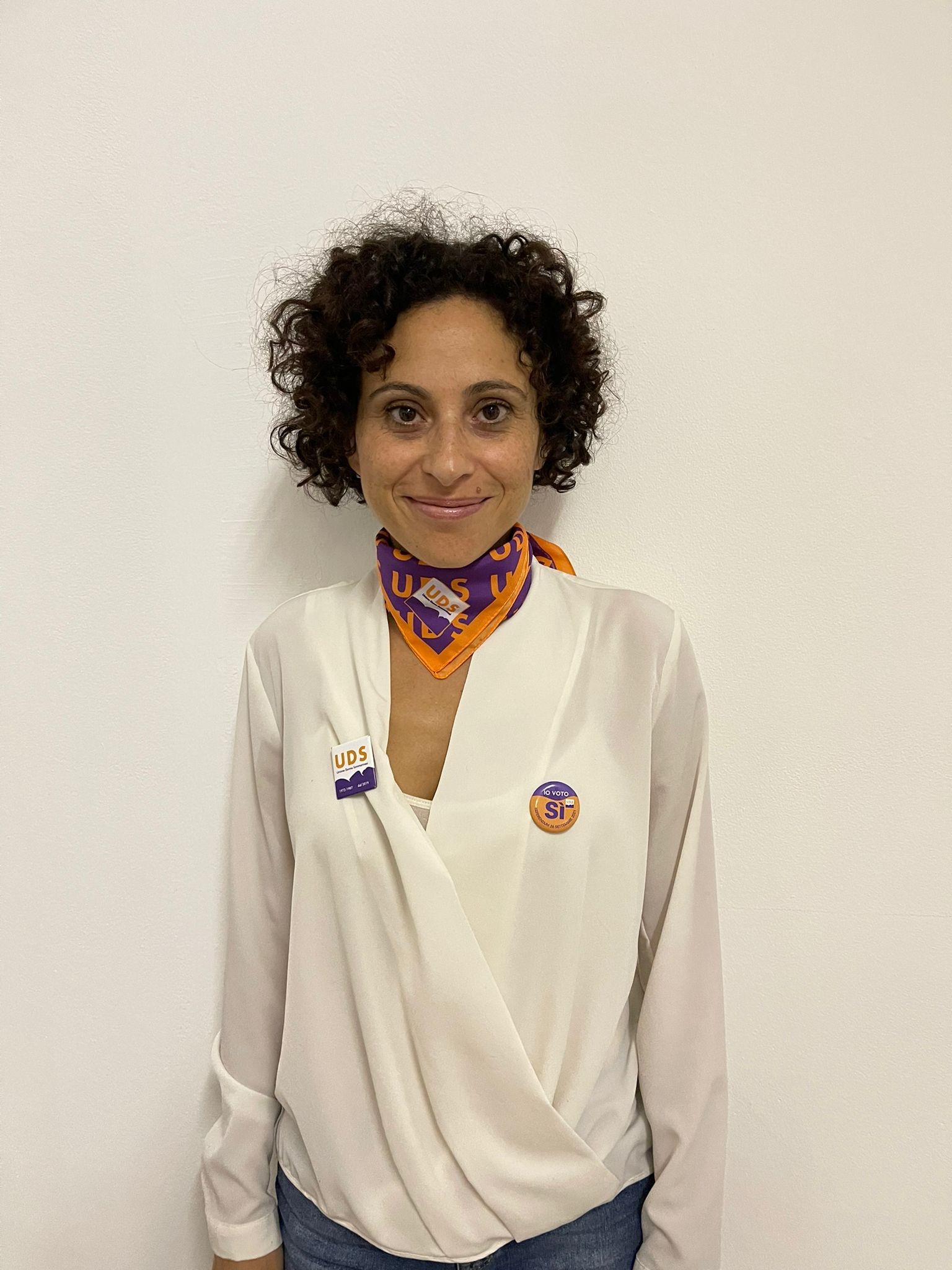Europe has been at the forefront of the global trend towards the liberalization of abortion laws for more than 60 years. But there is still work to do to give all women and people who can become pregnant access to safe and legal abortion.
Almost all EU member states have now legalized abortion on request or on broad socio-economic grounds and, in the last few years, several European countries have enacted important progressive reforms or taken steps to remove harmful procedural and regulatory barriers that can impede access to abortion.
Every positive reform on abortion around the world is hard fought. They are first and foremost achievements of women who courageously break their silence about their experiences of unsafe abortion, as well as women’s rights movements and their allies; people who have taken action, started petitions, gone to court, organized protests, lobbied governments and run workshops to demand their human rights.
But they have not stopped there; they have formed groups to provide solidarity, information, practical and emotional support and health care to people in need. People do this despite enduring stigma, threats, harassment and even criminalisation.
“A warning example” – Activists under threat
In Andorra – one of the few remaining states with a total ban on abortion – the president of the women’s rights organization Associació Stop Violències, Vanessa Mendoza Cortes, faces criminal charges for normal, legitimate and vital work conducted regularly by human rights defenders around the world; that of presenting her expert opinion on the situation before the United Nations Committee on the Elimination of Discrimination against Women (UN CEDAW). She is currently fighting the charges, which could see her fined 30,000 euros.
Our achievement is that, not only have we not kept quiet, but we have continued our work.
Vanessa Mendoza Cortes
“What [the Andorran authorities] are trying with me is to set a warning example, to silence others who want to fight for this or for other human rights. Our achievement is that, not only have we not kept quiet, but we have continued our work.
We can’t keep quiet. If you keep quiet, you are on the side of the oppression and the oppressor. And we decided a long time ago that we were no longer silent.
We are not the first to fight for rights in Andorra, but we are the first ones to have raised this much international awareness, and that has worked well.
Through our work, we have seen that women in Andorra now realize that we have no rights, we are not considered equal to men but second-class citizens and cannot decide about our own bodies – creating this understanding that, as women, we are also part of society and we also have rights, is positive: people begin to question the status quo. We want violence to end for all women in the world. And in the world there are also the women who live in Andorra, who live here totally silenced. This has to end and that is what keeps us going.”
Malta: “We know this is right”
In Malta a coalition of pro-choice groups is challenging similar draconian and dangerous abortion laws. Malta is the only EU Member state with a complete ban. Since 2019, the Voice for Choice coalition, currently consisting of 10 different grass roots organizations, has managed to create a national discourse and mobilize the younger generation in particular. They also established a free Family Planning Advisory Service (FPAS) run by trained volunteers who provide free information on reproductive choices to people in Malta.
Prof. Isabel Stabile is a gynaecologist and a member of Doctors for choice in Malta.
We know this is right. We also know it’s inevitable. I am quite sure that the law will change.
Professor Isabel Stabile
“The discourse around abortion in the country definitely changed – for one thing we’re talking about abortion. Two years ago we weren’t even doing that; it was completely taboo. And what has helped in that regard is real stories of women, such as the break the taboo page, an online repository set up by a group of young students where women can submit their stories anonymously.
What keeps me going, apart from my patients, is that we know this is right. We also know it’s inevitable. I am quite sure that the law will change. We are at this point, the last bastion in the EU, but it will change because it’s impossible for it not to.
I made a commitment years ago, to do everything in my power to assist people who need help. And that includes safe abortion, because abortion care is healthcare, whatever else some people in Malta might believe.”
Lara Dimitrijevic is founder of the Women’s Rights Foundation (WRF), which is spearheading the work of the coalition:
What keeps me going is the women themselves; I call them sheroes.
Lara Dimitrijevic
“Receiving support on a global level has made a massive difference for us: having organizations all over the world talk about this issue, whether it’s within Europe, Latin America, America, that’s been amazing. As an activist, it’s important to know that somebody is experiencing the same thing, to know and see that you’re not the only one out there, and that we’re all in it together.
It is crucial for people outside of Malta to know how bad the situation is on this tiny island in the middle of the Mediterranean; many people don’t even know it exists. We feel lucky to have that support, wherever it comes from, because it makes you feel that you are bringing the change, that your voice is being heard.
Engaging with young adults and adolescents, seeing them wanting to take lead on this matter, because they feel so strongly about it is, again, for me is another success as a coalition. A recent survey found that especially among the younger generation, people are in favour of decriminalization. And campaigns such as by the Young Progressive Beings are what will keep our coalition growing. Promoting this intergenerational dialogue is a positive trend for the future of our country.”
Poland: challenging backwards steps
In Poland, a Constitutional Court ruling in 2020 restricted access to abortion further, making it illegal even on the grounds of “severe and irreversible fetal defect or incurable illness that threatens the fetus’ life”. This retrogressive step severely undermines people’s right to health by pushing abortions underground or forcing those who can afford it to travel to foreign countries to access abortion care.
The ruling sparked mass protests across the country and internationally, putting a spotlight on organizations such as Abortion Dream team, who have been pushing back against attempts to even further restrict access to abortion since October 2016, around the time when the ruling Law and Justice party backtracked on their attempt to completely ban abortion after millions of Polish women and men participated in the “Black Protests”.
We knew that nothing would change if society’s view on abortion didn’t change.
Abortion Dream Team, Poland
“We have been living with the reality of abortion ban, criminalization of abortion and a fetus-oriented debate on abortion for long enough. There was hardly any space for real people and their experiences. Abortion for a long time was a moral issue to talk about, a problem to solve, instead of being treated as a real part of people’s lives. We wanted to change that. We wanted to make people realize that abortion is a common thing, not a political declaration or statement but an experience that many of us have, despite our religions, beliefs, education and political views.
We see that the solidarity, support and empathy we provide to those trying to access abortion services has made a difference. Firstly, we can see the community of those who support others has been growing. Secondly we see how many people, while protesting, are not only expressing their views but also sharing information about possible options for those who need abortions. We think that public opinion on abortion has significantly shifted since 2016, and more people got involved in the movement.
We believe that the work we do is bringing us closer to success. It is going slowly because it is hard to recover from so many years of abortion stigma that has also been present within the feminist and pro-choice movements. We also see hope in the fact that many young queer people have been active in the protests. For them it is obvious that abortion and queer issues are closely connected and driven by the same mechanisms of power and abuse. Education has played a significant role in development of the current views on abortion. Not only lack of sexuality education but also the presence of religion classes in schools, anti-abortion propaganda, and the restrictive legislation caused a common understanding that abortion is bad. Sexuality education is not seen as a chance to teach people about safe abortion options and methods and about abortion being a part of human sexuality.”
The impact of COVID 19
The COVID-19 pandemic further exposed the lack of access to sexual and reproductive rights, which are part of the structural and systemic discrimination that women and girls have long faced. It also made it more difficult for activists to come together and campaign for that access. Nonetheless, their advocacy pushed some European governments, including France, England, Wales and Scotland, Ireland, Spain, and Germany, to take measures to facilitate easier access to medical abortion, including by extending legal time limits, permitting self-management of medical abortion at home and conducting consultations via telemedicine.
Authoritarian governments and groups opposing reform might be challenging this progress but it is the voices of courageous activists all around the world who are demanding better access to safe abortion, in law and in practice. We have also seen real change in South Korea, Thailand , Argentina, Mexico. It is the community these activists create, united in solidarity and a common vision, that makes change possible. And with each positive reform momentum is built for further progress in relation to women’s rights around the world.
Unity and strength in Ireland
Jennifer Ryan is an activist and member of Termination for Medical Reasons (TFMR), a campaign and support group seeking to change the law in Ireland to allow terminations in cases of fatal foetal abnormalities. The campaign for abortion law reform in Ireland resulted in 66.4% voting Yes in a referendum in 2018, followed by legislation making abortion on request legal in Ireland. The new law has been a significant win in Ireland – and beyond – but as Jennifer herself says “it isn’t perfect” and the campaign continues.
That unity and strength that you get from each other, it really carries you through.
Jennifer Ryan
“The Yes vote felt like a justification that what had happened to us, that we had to travel to be able to get health care, was wrong, and that the people had recognized that it was wrong. And that shouldn’t have happened. And we voted to correct that for the women coming. We had been campaigning for what felt like forever like at that point, for me it had been six years of campaigning. And most of the people in the group went straight from our bereavement to campaigning, so we never really got a chance to grief properly with the anger and upset and annoyance of the legal restrictions.
We were thrilled about the outcome, that there was such a huge margin that we had won by, really we felt amazing. All the heartache, all the media appearances; that meant something and our work had really helped.
In Ireland, the government’s view of abortion, abortion services and the Eighth Amendment was miles behind public opinion. And no one in the government wanted to have anything to do with it, they were too scared, because they thought there would be a really huge divide. But when you look at the votes it actually wasn’t that big. There were plenty of people who were saying we need to look at this, but they weren’t the ones in power. And you need these conversations to start in places of power.
At first, we genuinely felt like we were hitting our heads up a brick wall, like shouting into the void, and no one’s hearing you, but then a few more voices appeared. And then there was a huge amount of people behind and the whole logic of change for abortion rights. Going to events, like the marches that were organized, and demonstrations and things like that really gave you a sense of unity. And you knew, right, we’re not alone in this, we’re not shouting into the void. And when you’re having a really bad day and you feel like no one cares, having other people and groups reach out and say ‘No, we care too, we are still here.’ That unity and strength that you get from each other, it really carries you through.
And obviously I can say that, looking back in hindsight, knowing that we accomplished some legislation change in Ireland. But for a long time we really didn’t think anything was happening. And then it just kind of spurred on and there was just this new fire which had grown within people. And as we saw that through, it was amazing.
This is the year for their review of the legislation… we really hope that they will look at it carefully and recognize that it is too restrictive and make that legislation broader, so that more women can be cared for, whether they need medical or surgical abortions…and also look at the timeframe which is still very restrictive, considering the difficult situation women might find themselves in.”
Change is inevitable: San Marino
Progress is continually being made in Europe – most recently a resounding popular vote in favour of reforming a 156-year-old ban of abortion in San Marino. The referendum – held on Sunday 26 September 2021 – was the result of tireless campaigning by women’s rights activists and their allies in San Marino.
Elena D’Amelio is a member of the feminist group Unione donne sammarinesi.
We cannot take our rights for granted, at any time.
Elena D’Amelio
“All our attempts to modify the legislation through democratic tools were stopped by the governments that have been in power over the years, so we decided to start the referendum. This really was a last resort, but we felt we had to resort to it as the government didn’t have the courage to legislate. The campaign hasn’t been very easy, a referendum often can be very divisive, and it’s been tough, emotionally, for the entire population.
We don’t know how many people in San Marino travel to get abortions outside the state, but we know for sure there are some. And even if there’s only one, it is still wrong, the state needs to protect even that one.”
As a group, we did everything we could, we met with people, we campaigned, we used social media, we were on TV, at discussions, in the streets. And we also campaigned against anti-abortion groups that are not only rooted in San Marino but backed by the church and the anti-abortion movement in other countries, if you look at Texas or Nepal. So we felt a bit of like David against a Goliath. But the people confirmed that the anti-abortion groups are a minority in the country, and we would like to thank everyone who supported us throughout the campaign and said yes to change.”
The fight that we’re fighting it might look, and sound like something from the past, but it’s not, because there is a lot of backlash against women’s rights across the world. And I think that keeping an eye on San Marino will also be very important to understand the powers that are active in undermining women’s rights elsewhere. So it’s a small country, it seems like a small fight, but I think is very, very important. And we cannot take our rights for granted, at any time.”
Harmful and discriminatory abortion laws in Liechtenstein, Monaco and the Danish territory of the Faroe Islands are due to be challenged next.
The amazing activists fighting for reforms – and increasing numbers of women courageously speaking out about the harm and pain they have endured as a consequence of being denied their right to safe abortion services – give us hope about the possibilities for change.


